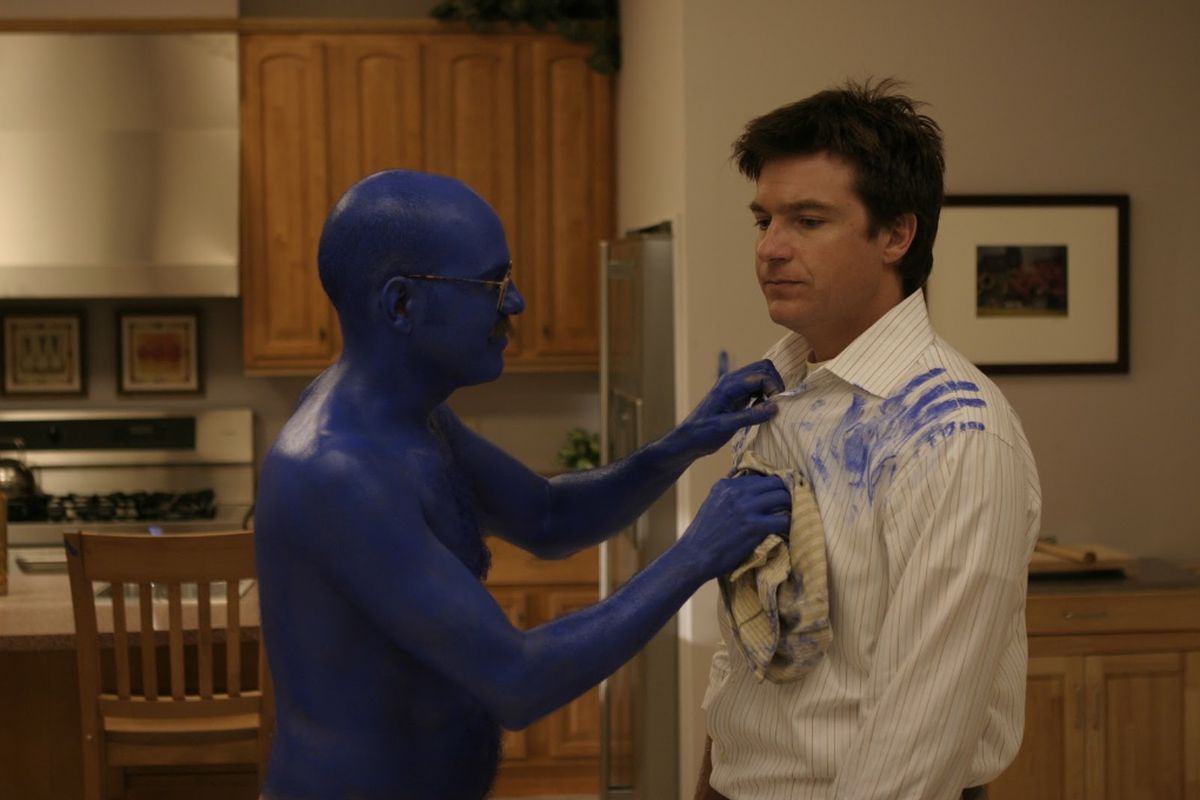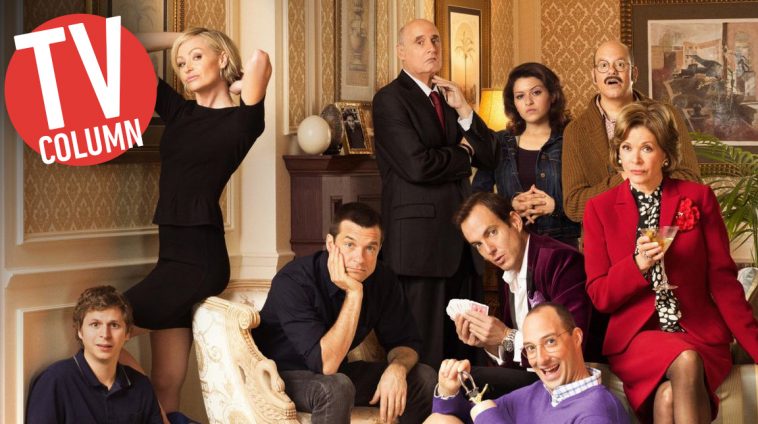 I loved Arrested Development. I’ve lost track of how many times I watched its initial three seasons or how many awful films and series I watched, just because they featured Bluth alumni (note to self: the presence of Will Arnett is rarely a signifier of quality in a comedy series). When Netflix launched the entire fourth season in one go, I put aside an entire weekend to binge through it, giddy at the thought of more Motherboy, more “Her?”, more “Steve Holt!”, more chicken impressions and more sad walking away to the Charlie Brown music. In reality, I made it through three episodes and gave up.
I loved Arrested Development. I’ve lost track of how many times I watched its initial three seasons or how many awful films and series I watched, just because they featured Bluth alumni (note to self: the presence of Will Arnett is rarely a signifier of quality in a comedy series). When Netflix launched the entire fourth season in one go, I put aside an entire weekend to binge through it, giddy at the thought of more Motherboy, more “Her?”, more “Steve Holt!”, more chicken impressions and more sad walking away to the Charlie Brown music. In reality, I made it through three episodes and gave up.

To call it a chore to watch is to put it mildly. Of course, overly high expectations played a part but it’s much more than that. The running times were unwieldy, the Rashomon style narrative (each episode focused on a different character) was cumbersome and boring, the jokes felt forced, the green screen effects were jarring, the narration (a highlight of the original run) was overbearing and the direction was shockingly amateurish. It was also unrelentingly bleak, as if Hurwitz was punishing the Bluths for getting cancelled in the first place.

But Hurwitz announced last week that we had re-edited the entire season, changing it from 15 episodes that ran between 30 and 40 minutes to 22 episodes of 21 minutes each. He also recut it so that events run in consecutive order and all the characters feature in every episode. There are two important questions here. 1) Why? 2) Is it any better?
The first answer is a three-parter. Firstly, with season five recently announced, there’s a risk that a lot of fans would give it a miss based on the fact that they either didn’t like season four, or that they simply didn’t finish it. Secondly, as Mitch Hurwitz ‘joked’ in his announcement, it’s possible that this is just an attempt to get the show syndicated and make more money. Thirdly, it could be akin to The Beatles redoing Let It Be as Let It Be… Naked. Given a little time and distance, Hurwitz saw the folly in his original vision and wanted to set it right.

That brings us to the second question: is it any better? Well, if someone served you a cold plate of sick, then took it away, reheated it and grated parmesan over it, would it be more palatable? That analogy is a little disingenuous, but there are too many elements to the original versions that were just unfixable for this to be considered a rousing success, such as the dour plot, the excessive narration and the weird effects used to green screen in absent actors. What could be fixed, though, is done so effectively. The pacing is vastly superior; episodes now zip by with an energy closer to the original three seasons and jokes land with better timing. Strangely enough, even without any extra footage, it felt like there were more laugh-out-loud moments in the re-edit. Bringing all the characters into each episode also makes it feel like less of a slog.

So, what does any of this mean for season five? Are we going to get a return to the heights of season two or a more middling version of the show, not that good but not that bad either? I’d say the latter is more likely, but the new season will be greeted a little more generously thanks to the new life breathed into its predecessor.
- TV Column: Does all kids’ TV have to be so noisy?
- TV Column: Is Baskets the best TV show that nobody’s watching?
- TV Column: Why even Hannibal Lecter deserves a second chance
- TV Column: Can a TV show truly be considered ‘great’?
- TV Column: Loudermilk and the problem with insults
- Here’s the official trailer for Season 5:








Leave a Comment